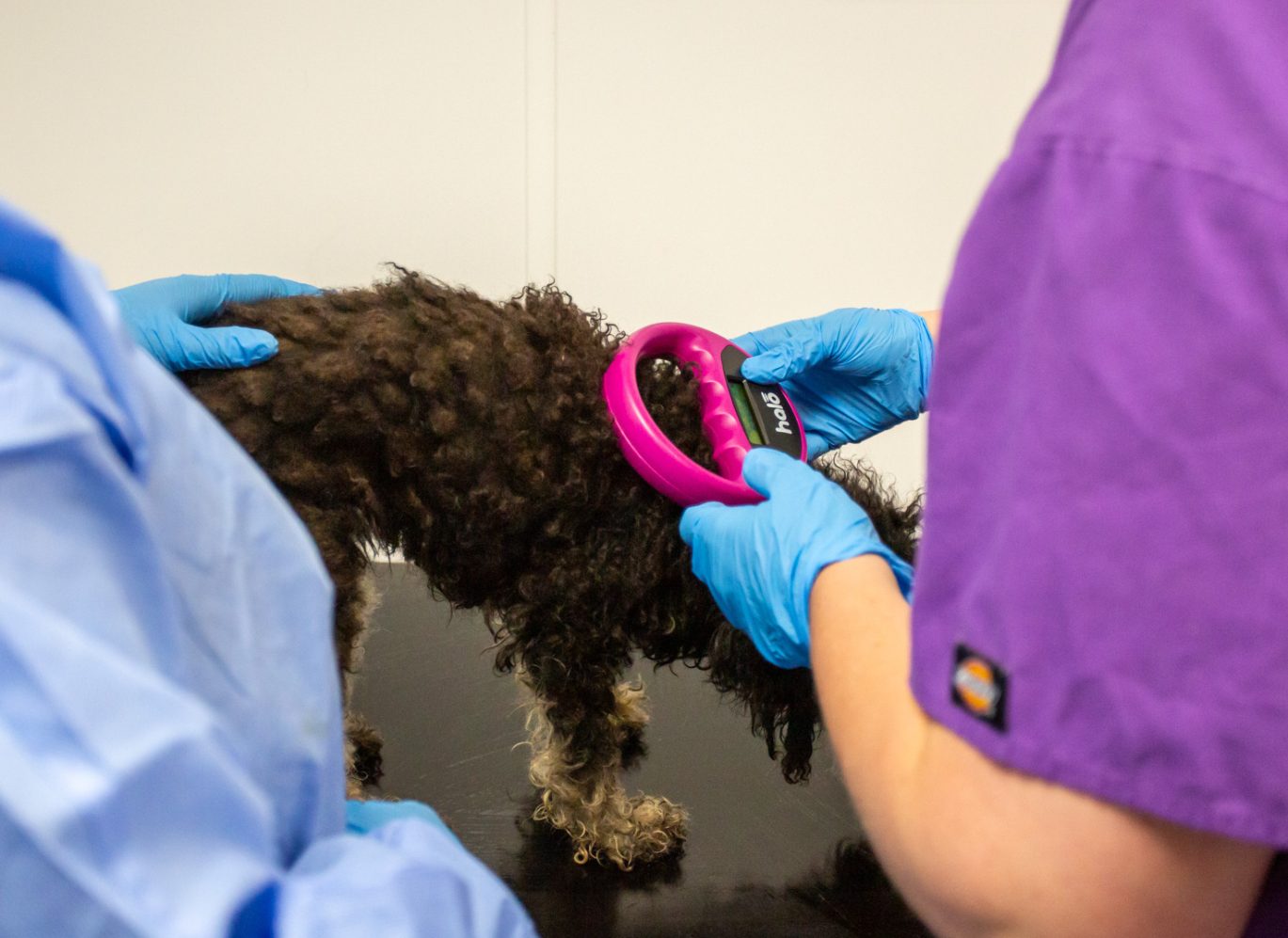
Micro
chipping
Microchipping your pets not only offers a range of benefits to their safety and wellbeing but it also gives you peace of mind should they ever get lost or stolen.
What is microchipping?
Microchipping is a quick procedure carried out by vets and trained professionals.
A tiny microchip, about the size of a grain of rice, is inserted just beneath the skin, usually between the shoulder blades. The microchip provides a unique identification number for your pet which is linked to your contact information in a database.
What are the benefits of microchipping?
Permanent identification
Microchips provide a permanent form of identification for your pet. Unlike collars and tags that can be lost or removed, a microchip is implanted under the skin and stays with your pet throughout their life.
Increased chance of reunion
If your pet goes missing, gets lost or is stolen, a microchip significantly increases the likelihood of being reunited. Animal rescue centres, veterinary clinics and animal control agencies routinely scan lost pets for microchips in order to quickly and safely reunite them with their owners.
Helps identify owners
In situations of dispute or if your pet is lost or stolen, a microchip can help you prove that your pet is registered to you through the contact information linked to your pet. Remember to tell your microchip company if your pet is lost or stolen.
Peace of mind
Knowing that your pet has a microchip provides peace of mind, knowing that you’ve taken an extra step to protect their wellbeing and increase the chances of their safe return if they ever go missing.
Helps prevent theft
Stolen pets with microchips can be traced back to their registered keeper, making them less attractive targets for theft. If your pet is stolen, remember to inform the microchip company as this often helps reunite stolen pets with their families. You should also file a police report.
Foreign travel
When traveling with your pet, especially internationally, microchipping is a requirement for entry into certain countries.
Do I need to get my pet microchipped?
In Scotland, microchipping is a legal requirement for dogs. Owners who do not microchip their dog can face fines of up to £500 or risk having their dog seized by enforcement agencies. This legislation is upheld by local authorities.
Although it’s not a legal requirement for other types of pets, we strongly recommend microchipping for any pets who are large enough to have the procedure carried out. If you are unsure whether your pet can be microchipped, speak to your vet.
When should I get my pet microchipped?
We would recommend getting your pet microchipped from six weeks old as long as they are big enough. However, if you adopt an older animal, they can still be microchipped.
Where can I get my pet microchipped?
The procedure can be carried out by a trained and qualified professional at your local veterinary clinic or at some other animal rescues. Some councils also offer a microchipping service so check with your local authority.
Certain types of pets like birds and reptiles may need to be microchipped by a specialist vet. Certain species need to have the chip inserted into muscle then sealed with a special glue. Some also require an anaesthetic.
How much does microchipping cost?
Microchipping generally costs up to £30 but this will vary depending on where you have the procedure carried out. Your vet will be able to give you an accurate price. Some vets offer microchipping as part of a package, particularly for puppies and kittens. There will usually be an admin fee for updating your contact information.
If you need help with the cost of microchipping your pet, contact organisations or charities in your area may be able to offer financial assistance.
Please be aware that pet insurance does not cover the cost of microchipping.
Does my pet need to wear a collar if they are microchipped?
Dogs owners are legally required to use a collar with an ID tag, even if the dog is microchipped.
Although it is not required by law for cats, some owners choose to use a collar and ID tag for peace of mind or to prevent their cat from being mistaken for a stray. However, collars can easily become lost or can even cause injury if they get caught on something. If you do put a collar on your cat, ensure it is suitable for your cat’s size and that the clasp is ‘quick release’.
Are there alternatives to microchipping?
Microchipping is the best way to ensure your pet’s safety but complementary forms of identification can also be used such as collars, ID tags and rings.
Can my bird/reptile be microchipped?
Microchipping can be carried out on many species of birds and reptiles but it depends on their size and body composition. If you’re not sure if your pet can be microchipped, consult a vet who specialises in reptile or bird care. The chip will either be placed under the skin (or into muscle if the species is thin-skinned) and is sealed with a special glue which holds the chip in place and allows the scales to heal properly.